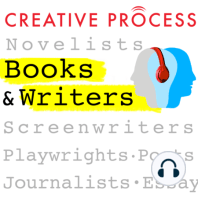44 min listen

Richard Thompson Ford - Author of “Dress Codes” - Stanford Prof. of Law - Expert on Civil Rights - Antidiscrimination Law
Richard Thompson Ford - Author of “Dress Codes” - Stanford Prof. of Law - Expert on Civil Rights - Antidiscrimination Law
ratings:
Length:
53 minutes
Released:
Sep 28, 2022
Format:
Podcast episode
Description
Richard Thompson Ford is the George E. Osborne Professor of Law at Stanford Law School. His scholarship combines social criticism and legal analysis, and he writes for both popular readers and for academic and legal specialists. He's written for the Washington Post, San Francisco Chronicle, Christian Science Monitor, and other publications. He’s a regular contributor for Slate and has appeared on the Rachel Maddow Show, The Colbert Report, and other programs.His most recent book is Dress Codes: How the Laws of Fashion Made History. His books The Race Card: How Bluffing About Bias Makes Race Relations Worse and Rights Gone Wrong: How Law Corrupts the Struggle for Equality have been selected by the New York Times as Notable Books of the Year. In 2012, On Being a Black Lawyer called him one of the most influential black lawyers in the nation."We present ourselves and our bodies every day in public, and the way we do that is profoundly important. It's the way we establish a sense of self in a social domain. And clothing is the most direct way that's accomplished, and so of course it has political significance, and that's why it's always been regulated. Something that's trivial and superficial doesn't inspire a lot of rules and laws, but in fact, in our society up to the present day, there are lots of rules and laws around what people can wear. So those statements that are made can have profound significance at an almost subconscious level.That's why people were worried when African Americans [started dressing] in refined clothing because it suggested - against the dominant ideology of the time of white supremacy - that African Americans were refined and sophisticated. That's what that clothing suggests. When women [began wearing] masculine clothing, it suggested that those women could assert masculine privileges and masculine liberties because that's what that clothing suggested. It suggested that the women were not only refined, but also sober, practical, industrious - all of the things that women were denied in that context, and that made it a threat to the existing social order. And this is still true today."http://richardtford.law.stanford.eduwww.creativeprocess.infowww.oneplanetpodcast.org
Released:
Sep 28, 2022
Format:
Podcast episode
Titles in the series (100)
Donald Hoffman - Prof. of Cognitive Sciences, UC Irvine - Author of “The case against reality”: Conversation on consciousness, evolution, perception, spirituality, multiverse, critical thinking, meditation, science by Books & Writers · The Creative Process: Novelists, Screenwriters, Playwrights, Poets, Non-fiction Writers & Journalists Talk Writing, Life & Creativity